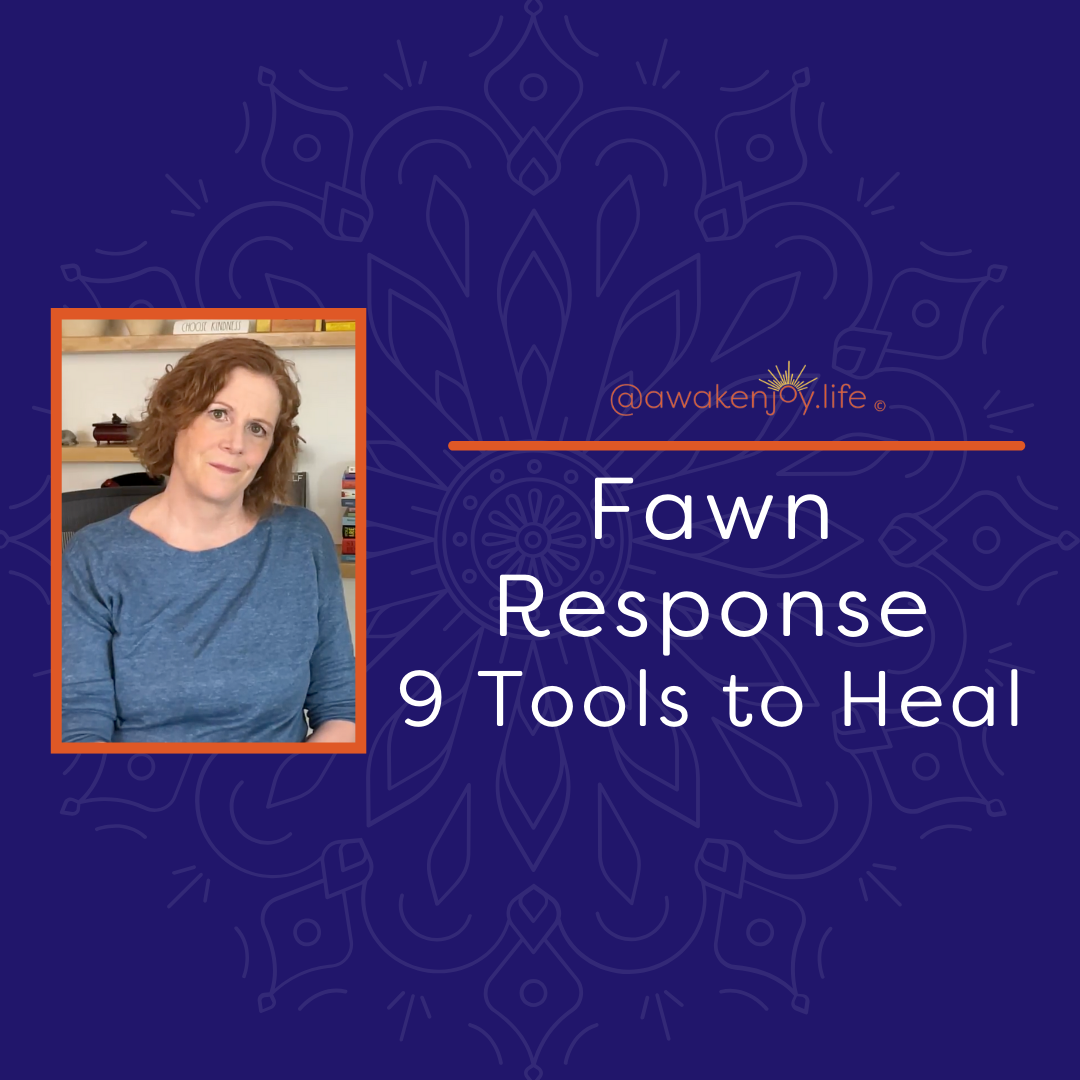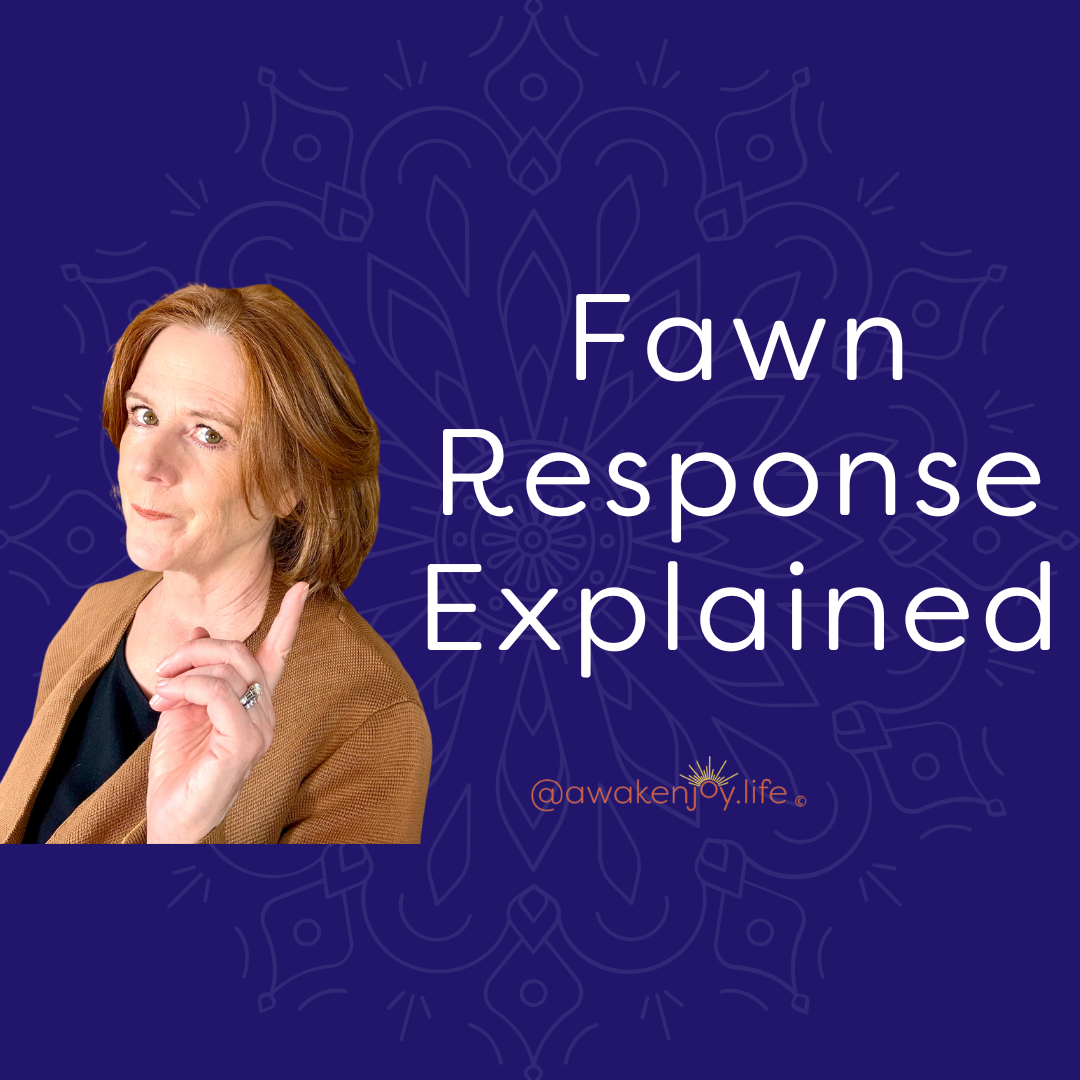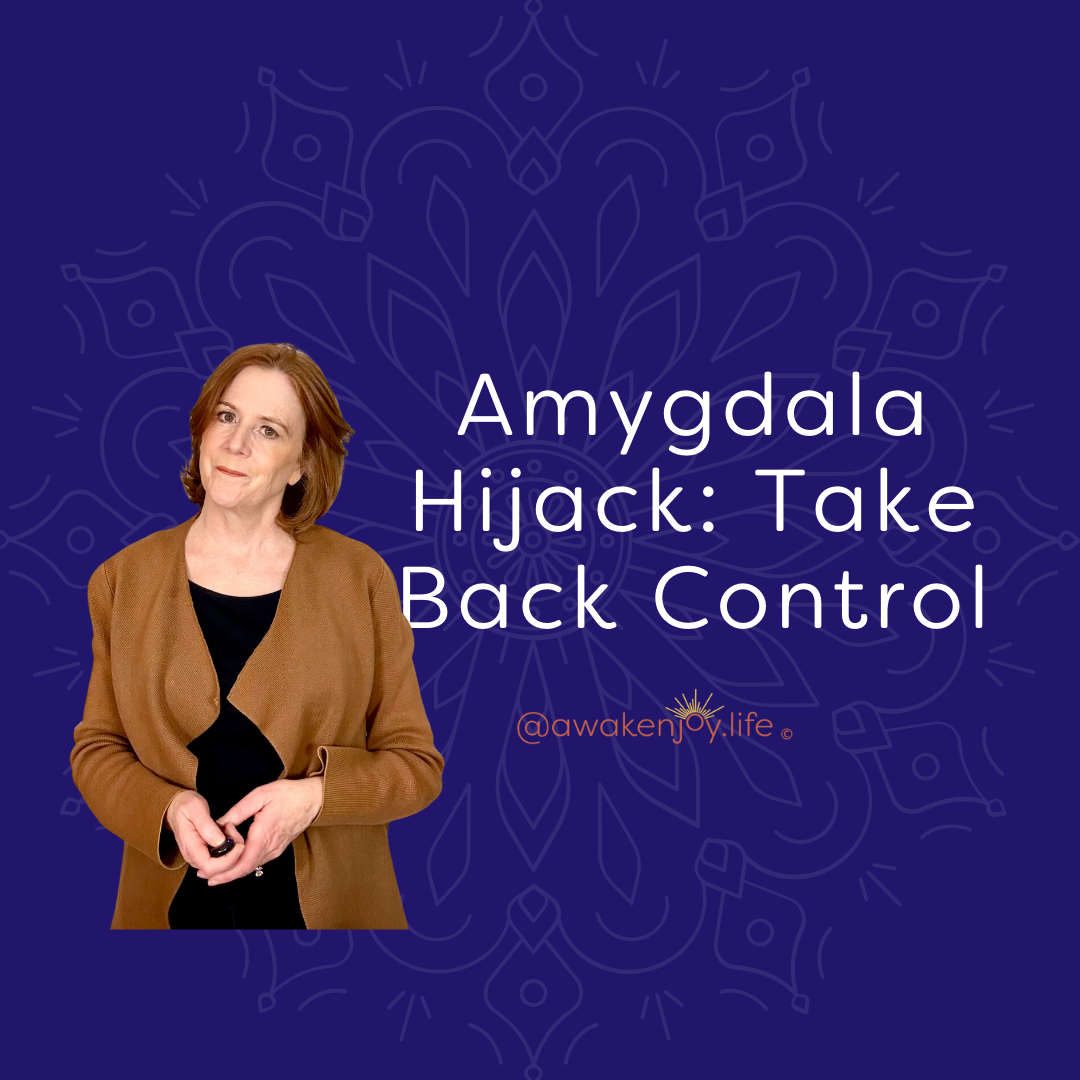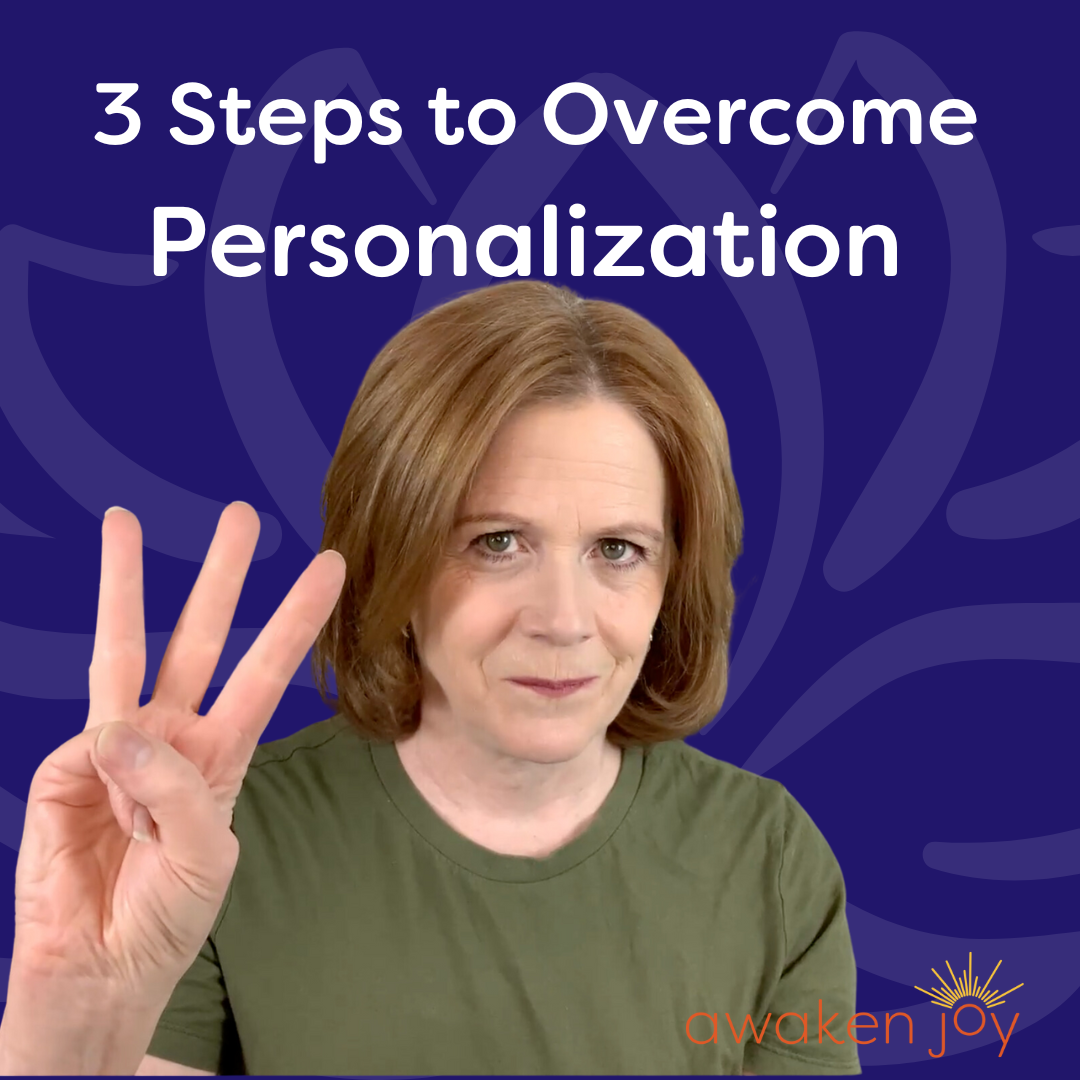Part One: How to Respond to Criticism
in the Moment
The most important thing to do in the moment when you are receiving criticism is to stay emotionally regulated.
Try to prevent your fight, flight, freeze response from taking over.
One of my favorite tools for this is diaphragmatic breathing. You can do it on the spot.
And if you know you're going into a situation where you might be criticized or you’ll be receiving a critique, using the diaphragmatic breathing ahead of time will help.
Another tip to help you stay grounded and emotionally regulated is to remember that criticism is an opinion. It's not a fact.
If somebody is criticizing you, you are hearing their opinion.
Try to be curious about what they're saying and what you're hearing. Is there something you want to clarify? Are you curious why they hold that opinion?
Even if your curiosity is, “why is this person even giving me this criticism?” that shift in focus will help enormously.
That curiosity can be very protective. It will help you emotionally regulate and you might actually get some useful information.
Next tip, with regard to a response in the moment, is to try to not become defensive. This is really hard for most of us.
However, if there is something you need to defend yourself about, you will have time later and it will come across better when you are more emotionally regulated.
Lastly, in the moment, try not to counter attack.
For example, if you receive criticism from a friend who complains that you're always late, you might be tempted to jump in with an aggressive response: “You're just too rigid!”
This is really not going to move the conversation in a productive way. Remember you don’t have to lay out your defense and attack immediately. You can take some time to think it through and approach it with a more problem-solving approach.
Part Two: Analyze the Criticism
Usually when we receive criticism or a critique or feedback, we have time to reflect on it afterward. It is definitely worth taking that time.
The first thing to analyze is whether the criticism was delivered constructively or destructively.
Constructive criticism is specific to the situation, and there is something the person can do about it. Destructive criticism is usually very general, and often there is nothing the person can do about it.
Another element of constructive criticism is that the person who is criticizing you has the “right” to criticize you or it is appropriate to the relationship. So, yes, your boss has the right to give you a critique, a coworker, maybe not.
Sometimes we give the right to somebody to give us feedback or a comment or critique, which is criticism. We might say to a friend, “Do you like this outfit on me?” So then if they comment back, we've given them the right to comment on our outfit. But if a total stranger approaches us on the street and gives us their opinion on our outfit, that person has no relationship to us and therefore the criticism can be destructive.
Lastly, with constructive criticism, the agenda is clear.
If this is your boss at work, the agenda is pretty clear: you want to keep your job and your boss wants you to do a good job. However, if the boss is personally attacking you (we’ll discuss the language of that below), then the agenda becomes unclear – is the boss’ main agenda to vent their own stress? Is there an agenda to shame you? Neither of those would be your agenda, and this would obviously be destructive.
Another example of an agenda not being clear could be in a spousal relationship where one person is always criticizing the other one for being too messy. There is probably a hidden message underneath that criticism. The criticism might be driven by a feeling of “You don't support me, you don't value my time, you don't consider me.”
There's something underneath it that isn't being articulated clearly.
And the other part of the agenda possibly not being shared could be a difference in opinion in terms of how clean your home needs to be.
Finding the shared agenda is a way to flip destructive criticism into constructive. For example, a more productive approach could start with “So, we both want a peaceful household. How do we achieve that given that we have different views of cleanliness?”
And then a big problem with destructive criticism is that it almost always uses “you statements,” labeling of the other person.
“You're so selfish.” “You are irresponsible.” “Youre mean.”
These are broad condemnations of you as a person.
As you reflect on the criticism you've received, you can put it in the category of constructive or destructive. You might also separate it out into which parts were constructive, and which were destructive.
Part Three: How to Respond to Destructive Criticism:
If the criticism is destructive, know that it is more about the other person's mood than about you.
It is more about their frustration, or anger, or maybe some underlying feelings that they don't want to admit.
Destructive criticism is often an attack. There's not always that much you can do to respond to destructive criticism because if you respond with defensiveness or with a counterattack, it usually gets worse.
If you're receiving destructive criticism, it is worth considering whether the relationship is worth the effort to try to find out what the real problem is, to go underneath whatever they are saying to find the real message.
For example, let’s say you receive destructive criticism from a boss, yet it's a job you love. You don't want to leave your job.
Perhaps you can be the more emotionally mature person in the relationship, and utilize curiosity to think through and find out what the real problem is?
Perhaps your boss is overly stressed and has too big of a burden on them. If you think this is at its root, then it is clear that this is really not about you.
And while nobody should have to deal with being treated poorly, and nobody should have to be on the receiving end of that kind of criticism, (including you!), you might be motivated to think through how to deal with the situation to your own advantage.
If you want to try to shift the conversation, see if you can shift it towards problem solving. You could go back to your boss and say, “Look, I can see how much pressure is on you.”
Starting with some kind of connection to the person or understanding what they're dealing with can be very helpful.
“I can see how much pressure there is on you and I do want to help, but for me to make some changes, I need more support in these areas.” Or maybe you have an idea about how to make something more efficient. Or you require more time to do something,
Shifting it to problem solving, if the relationship is worth it.
If the relationship or job is not worth it, and you are just on the receiving end of destructive criticism which you can't immediately get away from, you can just say, “Thank you for your feedback.” You really don’t have to say anything else in the moment.
And then you can look for ways to limit the interaction with that person.
(Responding to destructive criticism is complicated, so I hope to come out with further material on this. Drop a comment below if you want me to go into that topic more).
Part Four: Responding to Constructive Criticism
Okay, so let's say the criticism you received is mostly constructive.
What was your internal response to the criticism? Understanding your internal response is probably the KEY element within the overall topic of how to respond.
If you had a huge emotional response to the criticism, despite the fact that it was delivered in a constructive way, it probably hit a sore spot in you.
When we have oversized reactions to things, it is usually because of a deep wound from prior relationships or experiences. The worst wounds are usually from childhood. If you are aware that you are having a much larger emotional response than needed, it is worth taking some time to self-soothe and explore what has come up for you. The situation has probably hit a negative belief that we already have about ourselves. The situation and criticism is triggering that belief and that is why it is so upsetting to us.
Healing these negative core beliefs will benefit you in the long run (not just when receiving criticism!). There are many ways to work on this. As a therapist, I found EMDR therapy super effective (Eye Movement Desensitization and Reprocessing Therapy).
I do have a number of
videos on EMDR therapy. It is a very effective technique for healing those childhood wounds and negative core beliefs.
And then I also want to share with you that I do have a free PDF
Transform your Negative Core Belief. (It helps you identify exactly what that core belief is and it provides three techniques to rewire the beliefs into more adaptive positive beliefs. Many people have found it super helpful.)
I'm about to launch a live program for the first time in almost two years, that will help you transform your negative core beliefs. If you download the PDF, you will be on my mailing list and will be one of the first people informed when the program is launched!
in general, just know that if you are having an oversized reaction to criticism that was constructively delivered, it's probably hit that sore spot.
So to self-soothe, try to separate the issues in your mind. Come back to the present moment.
Tell yourself that the criticism does not confirm your negative core belief, which is old and not relevant to today’s situation. Focus on what you need to do about the criticism today.
Once you’ve calmed your internal response to the criticism, you can move on to these tips:
1) Ask yourself whether you agree with the criticism. Remember that criticism is an opinion. Do you agree with this opinion or not? You get to use your own critical thinking about whether or not it's valid.
2) And then another question is, do you need more info? Do you need more info to know whether it's valid or what you should do about it?
Often when we receive feedback from somebody, we don’t immediately think of questions for them about it. Sometimes it is helpful to go back and ask some clarifying information.
3) And finally, think through whether it is worth it to you to make this change.
A criticism is almost always a veiled request.
It's a request by the other person for you to do something differently. Is it worth it to you to make that change? Are you capable of making that change?
When you go back to the person to respond directly to their criticism, my main suggestions are to keep the focus on problem solving and keep the focus on the shared agenda.
What is the common agenda between you and this person? What do you both want out of the relationship? What do you both want out of the situation?
I’d like to empower you to understand that you have the right and the ability to assess the criticism you're receiving and to decide whether you want to accept it or not.
You get to decide whether you want to integrate it into your work and your personal relationships going forward or not.
And I would love to hear from you. I am open to criticism. :) You can comment below
Let me know if this was useful, and share with someone you think might enjoy this blog!













